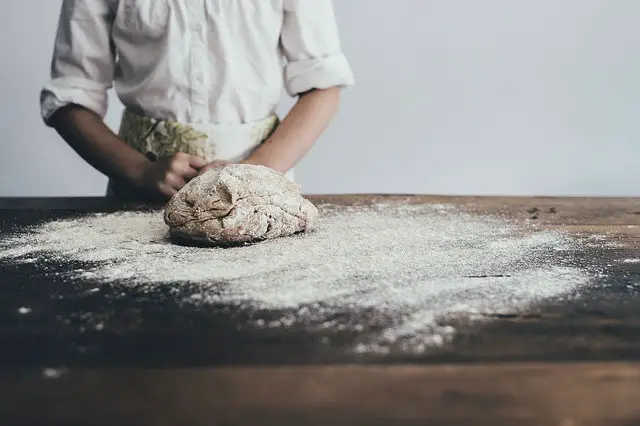Let’s face it, the kitchen can be a dangerous place, especially for a beginner. We all see the master chefs on TV chop an onion or dice a carrot in a matter of seconds while we carefully go about it slowly, still managing to cut ourselves sometimes.
Most of it comes from practice but it is also about having the right tools for the job and knowing the correct technique. Knives are not the only hazard in the kitchen there are many. Understanding what they are and how to prevent them will make your cooking experience a whole lot safer and more enjoyable.
Let’s take a look at 5 new tips for the safety of first time cooks.
1. Knives
I am going to start with knives as it is probably on of the most common safety issues in the kitchen. We have all cut ourselves while preparing food and believe it or not, it happens to the professionals too, trust me, I have seen it happen.
The first step towards knife safety is to ensure the blade is sharp. This might sound absurd at first but the reality is a sharp knife is much less likely to slip as you cut and also gives you much better control. You also do not have to press down on the knife as much which will minimize the chance of a cut. Always use good quality, sharp knives.
The next step is to learn the proper technique. If you can learn from someone that knows what they are doing, great. Alternatively, there are a number of good instructional video online that will teach you. You then need to practice. Take it slow at first and build up speed as you gain experience.
The basic rule is to curl your fingertips inwards, away from the angel of the cutting. You can use your knuckles to guide the blade on bigger knives. Respect the knife and exercise caution.
2. Burns and Fire
This is another kitchen danger and can happen all too easily. Again, common sense and respect for the hot oven, food or liquid is essential. Keep all handles facing inwards to prevent them from being knocked. Take care when placing food into hot oil or water to prevent splash back. Lay food gently away from yourself when placing in hot oil and don’t get water into the heated oil. Also, be careful of steam as this can also burn and take a few seconds after opening the oven door before you peer inside. Ensure you have quality oven gloves or mitts. Make sure you so not wear loose-fitting clothing that could catch a flame or jewellery that could get caught on something in the kitchen.
Always make sure you have a functional fire extinguisher and know how to use it. A fire blanket is also handy. Never, ever, use water on an oil or grease fire, it will just spread the fire. Keep an eye on the food, do not neglect it. A common cause of kitchen fires is hot oil under extractor fans. Over time the extractor fan fills with dust and grease, making it highly flammable. Very hot oil can ignite this, resulting in a fire.
3. Food Safety
Always clean your hands before and during food preparation and use specific chopping boards for vegetables, meat and other items. Be aware of the correct temperatures to store foods and how long they can be stored depending on the type of food and the temperature. Test or check your temperature to ensure they are correct. Discard food that is getting old and be sure to rotate foods correctly so the older products are used first. Do not store raw and cooked foods together. Sanitize regularly with a bleach solution.
4. Slips and Spills
Try and go for a non-slip floor surface and keep it clean at all times. If anything is spilt on the floor, clean it up immediately to prevent people slipping on in, especially if they are carrying hot food.
5. Appliances
Ensure all appliances are in good working order and that the wires are not frayed. Avoid overloading plug points. Make sure nothing covers the air vents of appliances and that the surfaces are clean and dust free. Never use metal objects to try and retrieve something from an appliance, a toaster for instance.
As I say, a lot of it is common sense and exercising a bit of caution in the kitchen but follow these 5 safety tips and accidents in the kitchen will be a lot less likely. Now you can focus on getting the meal perfect.


